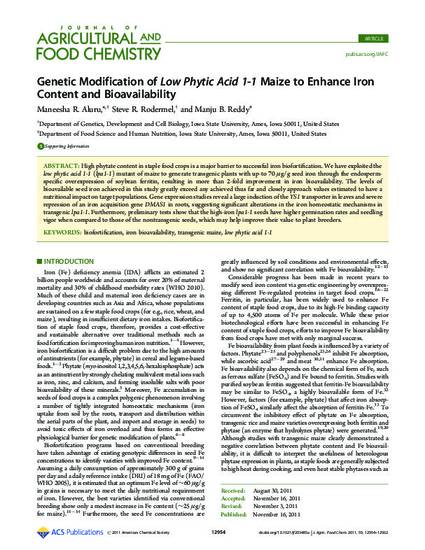
High phytate content in staple food crops is a major barrier to successful iron biofortification. We have exploited the low phytic acid 1-1 (lpa1-1) mutant of maize to generate transgenic plants with up-to 70 μg/g seed iron through the endosperm-specific overexpression of soybean ferritin, resulting in more than 2-fold improvement in iron bioavailability. The levels of bioavailable seed iron achieved in this study greatly exceed any achieved thus far and closely approach values estimated to have a nutritional impact on target populations. Gene expression studies reveal a large induction of the YS1 transporter in leaves and severe repression of an iron acquisition gene DMAS1 in roots, suggesting significant alterations in the iron homeostatic mechanisms in transgenic lpa1-1. Furthermore, preliminary tests show that the high-iron lpa1-1 seeds have higher germination rates and seedling vigor when compared to those of the nontransgenic seeds, which may help improve their value to plant breeders.
Available at: http://works.bepress.com/manju_reddy/14/

Reprinted with permission from J. Agric. Food Chem., 2011, 59 (24), pp 12954–12962. doi: 10.1021/jf203485a Copyright 2011 American Chemical Society.